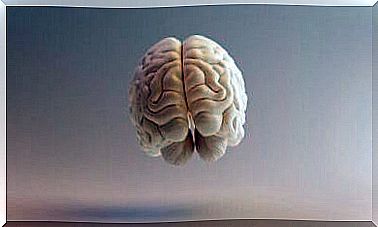The Emotional Self-control Of Anxiety

The emotional self-control of anxiety starts with a key affirmation: In a world where much of things are beyond our control, we must learn to take the reins of those areas that are well dependent on us.
What are they ? In reality, there are several, many more than we can imagine, but the most decisive concerns our emotional states.
We live in a reality dominated by change and constant uncertainty. It is therefore not strange that anxiety and stress are barometers that reflect the psychological challenge experienced by a good part of the population.
It is very easy to find yourself in the grip of a feeling of chaos, that feeling of being at the mercy of external events and seeing everything spiraling out of our control. Nonetheless, even though we have a raging and even threatening ocean ahead of us, everything can be better if we can manage our emotions.
Equipping our minds with calm and adequate strategies will allow us to light an internal beacon so as not to get lost. Emotional management is that rescue boat that allows us to cope better with a lot of difficulties. Find out here how to better cope with anxiety during these stormy times.

Anxiety Emotional Self-Control: What Is It?
Research on the impact of emotional self-control on anxiety has increased dramatically in recent years. The fields of self-awareness and the regulation of these psychophysiological states are considered essential and determining in the field of anxiety disorders.
But we have to pay attention to one detail. When we speak of “self-control” we often continue to associate this term with ideas like “restraint, repression or an effort to dominate something at the cost of a great expenditure of energy”. It is a mistake.
The area of control in the domain of emotions is linked to identification, acceptance and regulation. One should not suppress suffering or cover up anger without first understanding them, without knowing what is behind that feeling. It is only when we understand what our pain is made of that we can reduce its impact.
Thus, studies, such as those conducted at the University of Arkansas, tell us that today, fear and anxiety are almost the same entity. Fear is nothing more than a defensive emotion that puts us on alert.
Therefore, by educating the person in the field of emotional regulation and self-control, we will allow better management of these psychological conditions. Now let’s look at a series of keys to emotional self-control of anxiety.
It’s not about avoiding, it’s about accepting
We always tend to avoid, with a sort of obsession, what troubles us, hurts us, preoccupies us… We are very good at avoiding the emotions which embarrass us, without knowing that this only intensifies them even more.
Let’s take an example: Sometimes the emotion we feel when faced with the threat of what is on our mind can be much worse than the stressful stimulus itself. The anxiety that we can feel when facing an exam is much more disabling than the academic test itself.
Therefore, the first strategy in emotional self-control of anxiety is to accept every emotion you feel. We must give it space, without repressing it. We have to accept it for what it is, that is, a psychophysiological state with a concrete purpose.
Focus on what you can control, accept what is not up to you
Life is full of challenges, twists and turns of fate and complications that no one expects. Nobody among us has control over many of these events, but we do have a power: to face them in the best possible way. This is where our emotions come into play.
- You have the right to feel fear, rage, amazement, pain… But all these states can neither block you, nor handicap you.
- You are in control of yourself and each of your reactions should have a purpose: to adapt to what is happening to you. Adaptation is not synonymous with surrender: it is about responding adequately to keep moving forward with balance, intelligence and resilience.

The emotional self-control of anxiety: the technique of self-awareness
When we are anxious, we tend to withdraw or react in an oversized way, via a panic attack for example. An adequate strategy for working on emotional self-control over anxiety involves being aware of the present moment and releasing those emotions in a cathartic, adequate, and healthy way.
In what way? Here are some keys:
- What am I feeling here and now? Here I take a piece of paper and a pencil and write down every thought and feeling, then analyze them and try to rationalize those ideas.
- I realize my defensive and alert attitude, as if something is going to happen. Faced with this situation, I choose to ask for help, to speak with someone I trust about how I am feeling. Together, we will alleviate fears and concerns.
- I’ve been in my thoughts for several days, I’m tense, it hurts all over and I can’t stop brooding. It’s time to let go of this tension… Playing sports, going for a walk, running or doing some creative activity can help me.
These strategies will not help us deal fully with an anxiety disorder, we have to admit. Nevertheless, they are useful for everyday anxiety, for those states of great stress and worry that often torment us. Let’s take them into account and apply them as soon as we need them.









